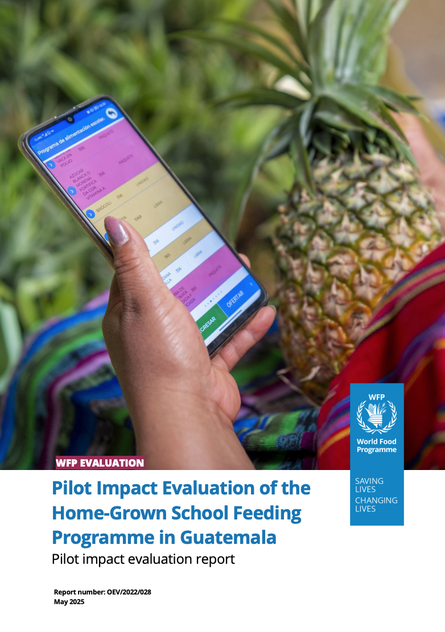
School meals programmes are among the most widespread social safety net programmes in the world. Rigorous evidence from several countries has shown that school feeding programmes enhance nutrition, enrolment, learning and cognitive abilities. Through the recent focus on home-grown school feeding (HGSF) programmes, school meal programmes have led to an increased focus on how such programmes can promote the socioeconomic lives of local communities beyond schoolchildren. However, the innovative element of these programmes also means that there is limited evidence available for policymakers of their impacts on local economies and service delivery.
To respond to this demand for evidence, the World Food Programme’s (WFP) Office of Evaluation and School-based Programmes, in partnership with the World Bank’s Development Impact Evaluation (DIME) department, created the School-based Programme Impact Evaluation Window. The window aims to contribute with a portfolio of rigorous impact evaluations to inform policy decisions on the trade-offs in the design of school-based programmes, support governments to design and scale up their programmes, and contribute to the global evidence base for school meals.
Guatemala has close to universal coverage of school feeding for primary schools. The Ley de Alimentación Escolar (LAE, or School Feeding Law) was introduced in 2017 to promote improved nutritional and health outcomes for students while also increasing the procurement of locally produced foods and beverages. The LAE requires that 70 percent of school meal purchases are procured through HGSF. However, market participation from family farmers is generally low. According to administrative data on school invoices, in 2022 only 26 percent of the 28,000 schools in Guatemala were able to procure 70 percent of their purchases from family farmers. To encourage market participation and facilitate market transactions, the Guatemala WFP country office, in partnership with the Ministry of Education and Ministry of Agriculture, has developed a smartphone app: the School Feeding Management Application (SFMA or ‘the app’). The aim of this app is to connect schools and registered suppliers (farmers) to facilitate a more efficient procurement process and optimize sourcing from local suppliers.
Before introducing the app nationwide to all schools, the WFP Guatemala country office initiated a pilot programme to assess its operational feasibility. Within it, a pilot impact evaluation was also set up to document the causal impacts of the app on procurement practices and inform the potential scale-up of the application. Pilot impact evaluations are recommended in cases where the time and scale of programming are limited, and aspects of the programme are yet untested. Based on WFP’s impact evaluation standard process, a pilot is usually conducted during the preparatory phase of an impact evaluation to provide confidence in the feasibility of a future design for evaluating an intervention.